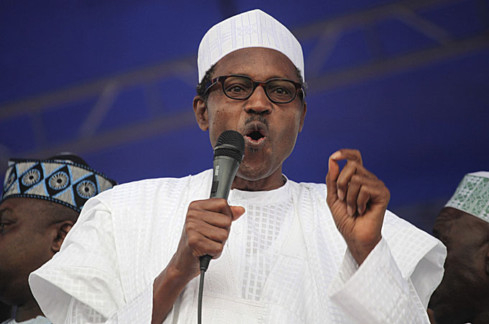
On 17 On November 17 more than 30 people were killed and more than 80 injured when a suicide bomber attacked a market in Yola, in north-eastern Nigeria. The attack was blamed on Boko Haram.
The next day, the group struck again, this time in Kano, using two young girls, one of whom was only 11. At least 15 people died in that attack, including the bombers, and many more were injured.
Across social media, Nigerians decried the attacks. “When will this end?” a friend of mine asked on Twitter after the second attack.
Responses were mostly pessimistic. They varied from “Never”, to “Only God will help us. Buhari can’t”. With each attack, and each renewed vow by this government to fight the insurgents, even friends who are naturally optimistic sounded less so this time around.
While two attacks within such a short space of time is sadly not atypical for Boko Haram (in July this year, Borno state came under multiple attacks which left more than 200 people dead in 48 hours), what makes these latest attacks more chilling (and perhaps more embarrassing for the government of President Muhammadu Buhari) is that they come only a few days after Buhari’s visit to Yola. His visit was to decorate soldiers for bravery in the fight against the terrorist group, and while there, he declared that his government was close to defeating Boko Haram.
Goodluck Jonathan’s massive loss at the March 2015 elections was due in part to Nigerians’ perception of his government as weak against Boko Haram, and the voters’ conviction that ex-military dictator General Buhari had the requisite know-how to put a definite end to the scourge of Boko Haram.
Buhari’s rhetoric of change, and his vow to decimate Boko Haram won him victory. In the days following his election, there was some hope, even among those who did not vote for him, that if he did nothing else, he would tackle Boko Haram.
Apart from having the reputation of being “a hard man”, “a no-nonsense man”, he was also a northerner. And a Muslim. Perhaps, with a northern Muslim in power, Boko Haram would be persuaded to go underground. If he couldn’t do it, who could?
Winning the fight
Between July and August, Nigeria’s state security services arrested 10 alleged Boko Haram militants across five states. In September, the Nigerian forces raided two Boko Haram camps in villages in the north east of the country, arresting more than 40 suspected members of the group, and releasing more than 200 abducted women and children.
In October, 45 suspected members of the group were arrested in Lagos. Yet despite this, and other reports of arrests of Boko Haram insurgents, the change Nigerians had hoped to see does not seem to be materialising. Boko Haram is still seen to be winning this fight.
A report released this week by the Australian thinktank Institute for Economics and Peace says that Boko Haram is the deadliest terror group in the world. But the “deadliest terror group” in the world does not operate in a vacuum.
Testimonies collected by Amnesty International reveal that villagers sent advance warnings to security forces when they saw Boko Haram on motor bikes entering the village. The security officials failed to avert the disaster because they did not act on the alert. Or could not.
Last year, a Nigerian soldier who spoke anonymously to BBC Hausa said that they were tired of “dying like fowl”. Soldiers, he said, were not being given enough weapons and ammunition to fight Boko Haram.
Just recently, Buhari ordered the arrest of former President Jonathan’s security adviser, who stands accused of awarding fictitious contracts to buy a dozen helicopters, four fighter jets and ammunition to help combat Boko Haram.
One does not barge into a well-armed enemy’s house to fight him with an empty hand.If Buhari is to fulfil his election promise, his government has to do more than send ineffectual “final” warnings to Boko Haram. Community policing must be encouraged, but it must be done in tandem with properly equipping our soldiers.
Guardian News & Media Ltd
Chika Unigwe is a Nigerian writer. Her latest novel is Black Messiah.










